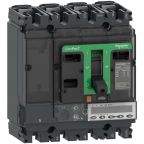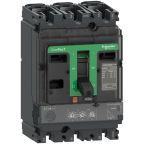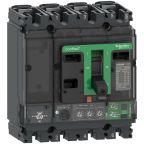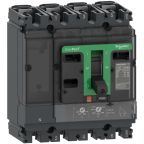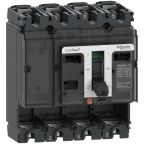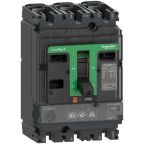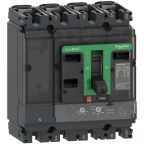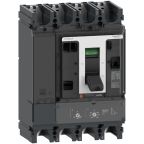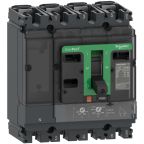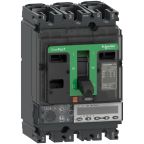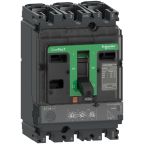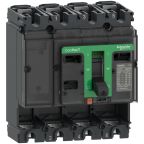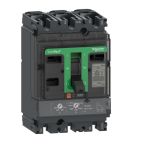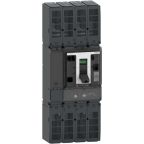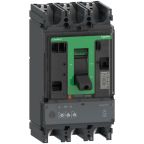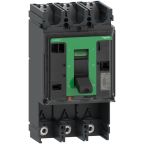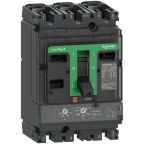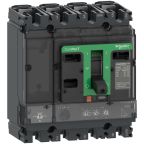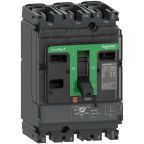MCCBs
Molded Case Circuit Breakers (MCCBs) are protective devices used to interrupt and protect electrical circuits from overcurrent and short-circuits. MCCBs are electrical devices that can be used to protect a wide range of electrical systems and equipment.
They are commonly used in low and medium-voltage applications and can handle higher levels of current than Miniature Circuit Breakers (MCBs). MCCBs typically have a rated current of 10 amps to 2,500 amps, and a breaking capacity of up to 200 kA.
How does an MCCB work?
An MCCB consists of a current-carrying bimetallic strip, a magnetic trip element, and a mechanical latching mechanism. When the current flowing through the MCCB exceeds the set limit, the bimetallic strip heats up and bends, causing the latch to release and trip the breaker. The magnetic trip element senses the magnetic field produced by a high fault current and trips the breaker.
Difference between an MCB and an MCCB
MCBs are miniature circuit breakers designed to protect low-current circuits up to 125 amps. They typically have a breaking capacity of up to 10 kA and are designed to trip quickly in the event of a short circuit or overload. MCBs are commonly used in residential and commercial buildings to protect individual circuits, such as lighting and power circuits.
MCCBs, on the other hand, are designed to handle higher levels of current (depending on which current rating you buy) and can protect larger electrical systems and equipment. They have a higher breaking capacity than MCBs.
Typical applications
MCCBs are commonly used in a wide range of applications, including:
- Industrial plants: MCCBs are used to protect motors, transformers, and other equipment in industrial plants.
- Data centres: MCCBs are used to protect power distribution systems in data centres.
- Commercial buildings: MCCBs are used to protect lighting and power circuits in commercial buildings.
- Hospitals: MCCBs are used to protect critical equipment in hospitals, such as MRI machines and X-ray machines.
